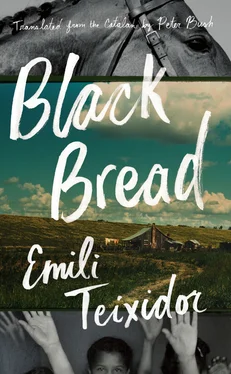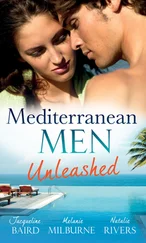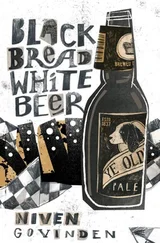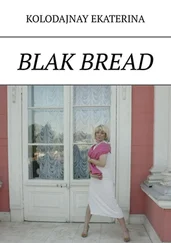Mr. Madern, the teacher, closed the storybook and gave us his commentary. His voice was hoarser than usual and he coughed to clear his throat two or three times before starting to speak. He kept homing in on me in particular, but I’d been thrown into turmoil by all those thoughts hitting me like waves of fury tempered by caution and the scrutiny of the new connections now rushing into my mind, and I didn’t really understand my teacher’s speech, or rather, I didn’t want to, I didn’t want to let myself be swayed by his words or to welcome them, now I had discovered the satisfaction of saying no, of refusing, of closure to the outside world and the pleasures of remaining embroiled in the twists, turns and combinations of my imaginative world.
“There are other stories in this book,” said Mr. Madern, the teacher, “that I am sure you might like, like the one entitled ‘The Tiny Florentine Scribbler,’ or another by Juan Valera, ‘The Mirror of Matsuyama,’ but I chose this one because it describes a teacher bidding farewell to his pupils, and that’s what we are experiencing here today. It is another country, and the teacher and pupils are different. But what is memorable is the legacy the teacher leaves behind, what he has taught them…”
He paused to clear his throat. He gave the impression he hadn’t finished what he wanted to say or didn’t know how to. So many twists and turns lost me, or perhaps the fact was I didn’t want to listen to him, didn’t and did, as Grandmother would say.
“Wars always leave a trail that lasts for years, that’s a struggle to overcome and can sometimes be as hurtful as open warfare, but that period is drawing to an end… Some episodes… I mean, the war…”
I felt he was referring to me, but there may have been other cases among my schoolmates, “episodes,” as he said, that only the teacher was aware of, and his message was aimed at everyone.
“I am sure you’ll like the stories I mentioned before, I’m sure you’ll like them if you read them carefully. You’ve got these two books and I’ll add a couple more so the school can start a small library. Perhaps some of you will be able to continue your schooling elsewhere and will have to read a great deal. You will have other books and other teachers. However, most of you will stay and work in town or will travel to Vic or other towns on the plain, to find work. I’d hope you could all move on.”
I began to pay more attention to the ebb and flow of my thoughts than to the teacher’s vagaries. I wanted to rediscover that stream of anger that had flowed a moment ago so I could be sure I could unleash it whenever I wanted. It wasn’t very hard, I only had to summon up the image of Cry-Baby clinging to the branch of the plum tree or sprawling in the deep shadows from the hazel-nut trees and a fire flamed in my chest and it was hard to conceal the burning I felt in my eyes, my neck and lips.
“The subject of all these stories is the same,” Mr. Madern, the teacher, now continued, “men’s struggle to move on, to overcome some mishap, to go forward… This struggle can sometimes be about knowing ourselves, about finding out who we really are, and that’s what Juan Valera’s story in the book is all about.”
Quite spontaneously I flitted from the dense shadows in the hazel tree spinney to the heartsease garden, and visualized the figure of the naked boy with TB resting on his immaculate sheet, and I thought how my cousin’s nudity and the sick boy’s had a common source, one I still couldn’t pinpoint, but I felt they were identical realities I could only express for the moment through words like beauty, emotion, curiosity, sickness, arousal, friendship…friendship, for sure, but not love, love was too grand and was out of my reach, friendship, for sure, and also companionship, closeness, attraction…the representation of love was still a blank, and I thought how love for one’s country, for France, and Alsace-Lorraine, that the teacher had read about, was adult business, remote feelings, somewhat futile fantasies, like their hollow, lifeless institutions, but on the other hand thanks to Núria and the boy with TB, I now knew what beauty, emotion, sickness, longing and desire were and could thus in some way understand why Cry-Baby put up with the teacher’s groping without complaining, even though she disliked it, just as the boy with TB disliked his sickness, but both said nothing, enclosed and protected by their pain, finding refuge in mystery, and this silence, this acceptance endowed them with a total, pure, definitive beauty, an aura of penitence and generosity that transcended beauty itself because it was beauty that had been sacrificed, was gratuitous, orphan, sacred abandonment to the desires of another — the teacher, sickness, the sunbathing, the shadow from the hazel trees… yielding to the desires they inspired and that made them more desirable, marble perfection like statues of Saint Lucia, her eyes offered up to everyone on a tray, Saint Sebastian, with his naked torso exposed to lethal arrows, staring into the sky, scorning the arrows of his executioners, exposed like the Holy Sacrament in the monstrance, or friar Saint Camillus of Lellis, bending over a half-naked, swooning, bloodstained leper who clung to his white habits.
“Things always return to their rightful place however much we mess with them, especially if a force exists that is determined to establish its order and impose its law,” the teacher, Mr. Madern, now continued, with respect to something he’d said previously that I had missed. “The force of will, the force of things, the force of reason, the force of law, the force of truth, it’s all the same, however you phrase it, force always win out in the short term or the long over misdeeds and secret conspiracies.”
He spoke of misdeeds, secrets and mischief, and I thought this must be aimed at Cry-Baby, but my cousin in the back rows seemed half-asleep, bored by that rant. Núria’s drowsy face, their secret and the name of France suggested the existence of an enemy. Till then I’d not thought of anybody as my enemy, at most there were nasty or scheming people I was at odds with, friends who were not so close or friends I didn’t talk to, but as yet I’d had no out-and-out enemies. Mother had told me that Father had had some, and they were the cause of his misfortunes, of our downfall. I had seen Mother’s rage when she attacked the four bigwigs, as she called them, and Grandmother, the fascists, on our way out of the cemetery the day Father was buried. But those were their enemies, my father’s or my mother’s, not my enemies. I didn’t know how one was supposed to deal with an enemy. There had to be a more forthright stance than simply turning one’s back or not speaking to them. And now I had discovered that hatred within me, I knew I was capable of having enemies, that now I could hate somebody and channel in their direction the vigorous energy suddenly pouring from me like the revelation of sexual potency or attraction of naked white bodies. That energy had a purpose, which was to defend me against my enemies, and right then I thought how the closest enemy I had in the present was the teacher, Mr. Madern, and to test out the intensity and extent of my hatred I should perhaps decide to hate France, an entire nation, despite the initial loss of Alsace-Lorraine — had the teacher sanctified the martyr-provinces, or was he referring to other provinces I’d missed through my lack of attention? — because he seemed to sympathize with that war and I’d decided to remain aloof and curse everything he loved. So then, it was also possible to hate an entire country, and that capacity to hate was extraordinary and a revelation that brought me such bliss, such a great feeling of superiority, that there was no need for me to lean back against Dr. Caminals’ garden gate, as I used to with my mates in town, when we cut a notch in the wood with a knife, to see whether we’d grown a little or a lot over a given period, whenever we remembered to measure ourselves, because I now knew I had really grown up, and that the hatred within me could grow to match the stature of my enemies.
Читать дальше












